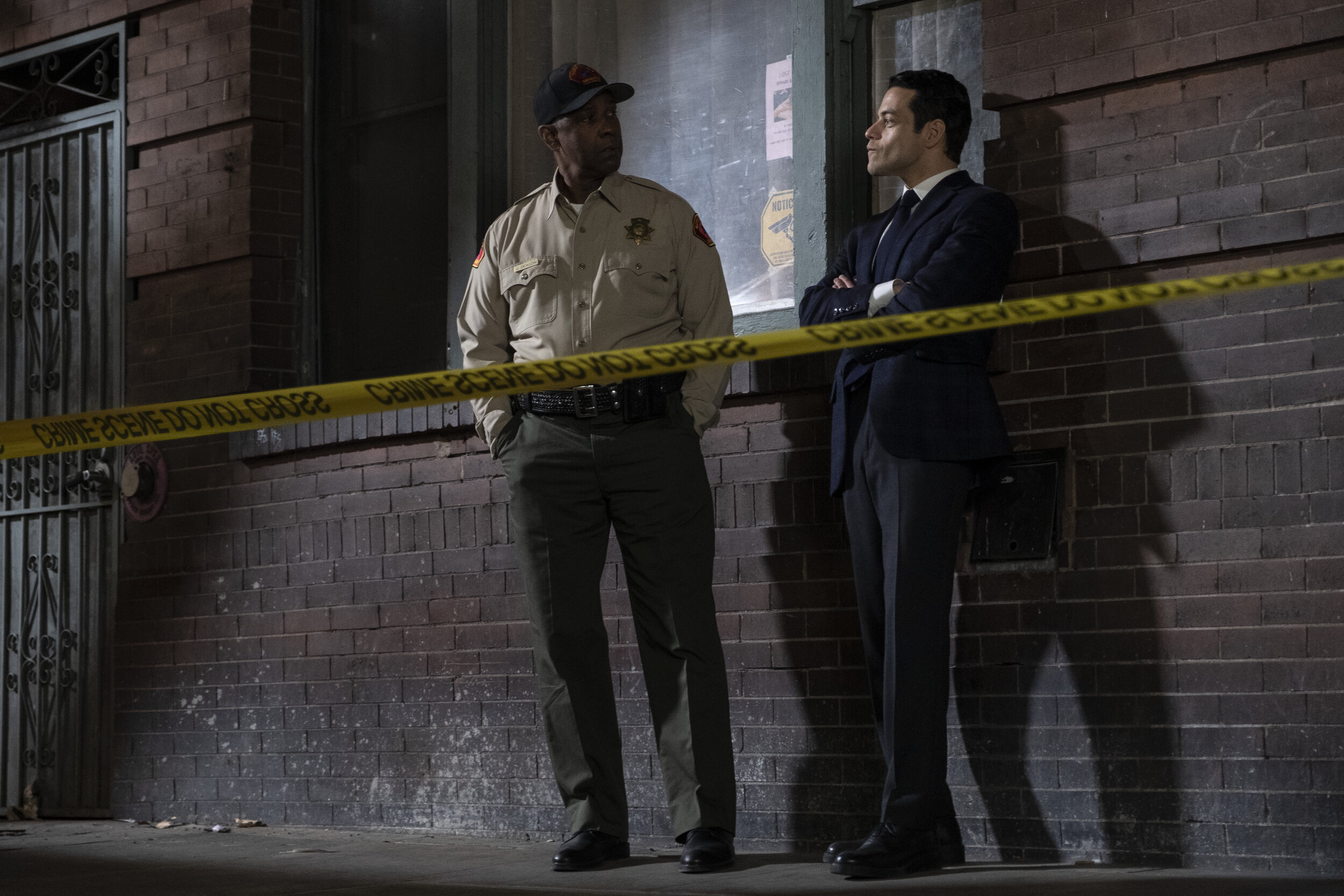Review: 'The Little Things' is one big mess, in spite of three Oscar winners filling out this sleazy serial-killer movie
On a scale of one to “Se7en,” “The Little Things” barely rates a three.
Writer-director John Lee Hancock peddles many of the tropes of David Fincher’s famous serial-killer police procedural — with an old cop working with a young cop, trying to outwit a seemingly implacable madman. But in trying to duplicate that movie’s moral ambiguity, Hancock just produces a muddled mess.
Set in Los Angeles in 1990, the story follows Joe Deacon (Denzel Washington), known as “Deke” to his friends — of which he doesn’t have too many these days. Deke’s a deputy in a rural California jurisdiction, sent by his boss to collect some evidence being held by the Los Angeles Sheriff’s Department, a couple hours’ drive away.
Deke still has some friends in the L.A. Sheriff’s Department, where he worked as a detective a few years earlier — that is, until a case that, according to his old boss, Capt. Carl Farris (Terry Kinney), led to his suspension, a divorce and a triple bypass. Deke looks up some old acquaintances, but he also listens in as a young detective, Jim Baxter (Rami Malek), tries to reassure the press that the serial-killer case that’s terrorizing the L.A. area will be solved.
Despite warnings from Farris, Baxter seeks advice on the case from Deke — who sees parallels between this killer and the case that abruptly ended his LASD career. Soon, Deke is riding shotgun with Baxter, helping the ambitious young detective track down leads and try to make a case against a creepy guy named Albert Sparma (Jared Leto), who seems to be having too much fun toying with Baxter and Deke.
With three Oscar-winning actors and some luridly sensuous images of Los Angeles captured by cinematographer John Schwartzman (“Seabiscuit”), Hancock — who directed “Saving Mr. Banks” and “The Blind Side,” among others — should be able to knock this one out with little effort. Alas, his script is riddled with ham-fisted plot mechanics, a flashback structure that telegraphs the movie’s punches, and (no spoilers here) an ending in which the filmmaker thumbs his nose at every police-reform argument we have heard in the last few years.
Washington and Malek have some nice moments together in “The Little Things,” two generations of actors trying to bring some gravitas to a sleazy police drama. But they’re thwarted by that stink-bomb ending, which demonstrated that sometimes it’s not the little things but one big thing that destroys a movie.
——
‘The Little Things’
★1/2
Opens Friday, January 29, in theaters where open, and streams on HBO Max. Rated R for violent/disturbing images, language and full nudity. Running time: 127 minutes.







